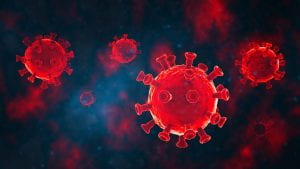
Touch is ubiquitous throughout our lives. As newborns, it’s the first sense to develop and it provides much of our initial knowledge of the world. As we grow, we experience touch in a myriad of forms: cuddling, hugging, kissing, massage, and even petting a stuffed animal. [Read more…]
 Mild cognitive impairment—lapses such as missing appointments, losing things, and having trouble finding the words to describe something—affects millions of older adults across the United States. Yet because it’s so common in later life, many people ignore or brush aside the condition.
Mild cognitive impairment—lapses such as missing appointments, losing things, and having trouble finding the words to describe something—affects millions of older adults across the United States. Yet because it’s so common in later life, many people ignore or brush aside the condition.  If you spend time on YouTube or TikTok, you may have come across videos of someone whispering into a microphone, carefully slicing stacks of slime, or slowly ripping strips of paper. These videos are designed to trigger an autonomous sensory meridian response, or ASMR, a tingly feeling that travels from the top of the scalp down the back of the neck to the upper spine.
If you spend time on YouTube or TikTok, you may have come across videos of someone whispering into a microphone, carefully slicing stacks of slime, or slowly ripping strips of paper. These videos are designed to trigger an autonomous sensory meridian response, or ASMR, a tingly feeling that travels from the top of the scalp down the back of the neck to the upper spine. 


 More than four years after the first humans became infected with the SARS-CoV-2 virus, scientists understand more than ever before about how COVID-19 affects people. Beyond respiratory symptoms, COVID can lead to nausea, vomiting, diarrhea, rashes, and even eye infections. We’ve also learned that people can experience long COVID, which involves continued symptoms for months or even years after they initially get sick.
More than four years after the first humans became infected with the SARS-CoV-2 virus, scientists understand more than ever before about how COVID-19 affects people. Beyond respiratory symptoms, COVID can lead to nausea, vomiting, diarrhea, rashes, and even eye infections. We’ve also learned that people can experience long COVID, which involves continued symptoms for months or even years after they initially get sick.  Thousands of people now speak to their smart devices to make their grocery lists. Students are more likely to type out notes in class than write them down. And we often type or dictate calendar reminders into our smartphones instead of writing them on a wall calendar. In short, people across the globe and in a wide variety of settings primarily use digital devices to record the things they want to remember.
Thousands of people now speak to their smart devices to make their grocery lists. Students are more likely to type out notes in class than write them down. And we often type or dictate calendar reminders into our smartphones instead of writing them on a wall calendar. In short, people across the globe and in a wide variety of settings primarily use digital devices to record the things they want to remember. 

 More than 10 years ago, an organization in the United Kingdom called Alcohol Change U.K. kicked off a Dry January campaign to encourage U.K. residents to abstain from drinking alcohol for January.
More than 10 years ago, an organization in the United Kingdom called Alcohol Change U.K. kicked off a Dry January campaign to encourage U.K. residents to abstain from drinking alcohol for January.

